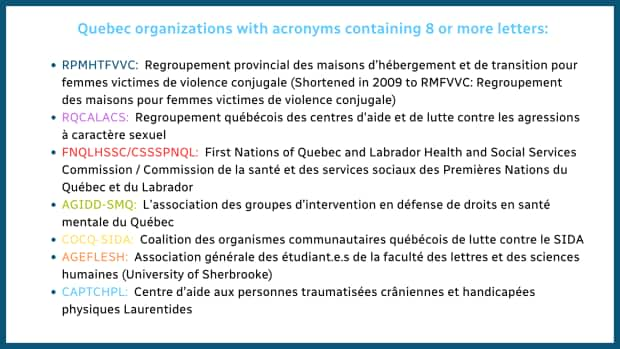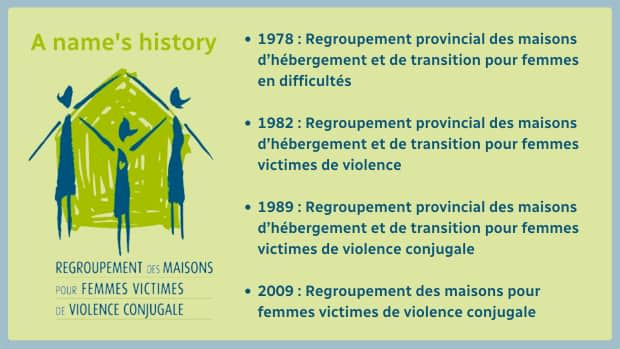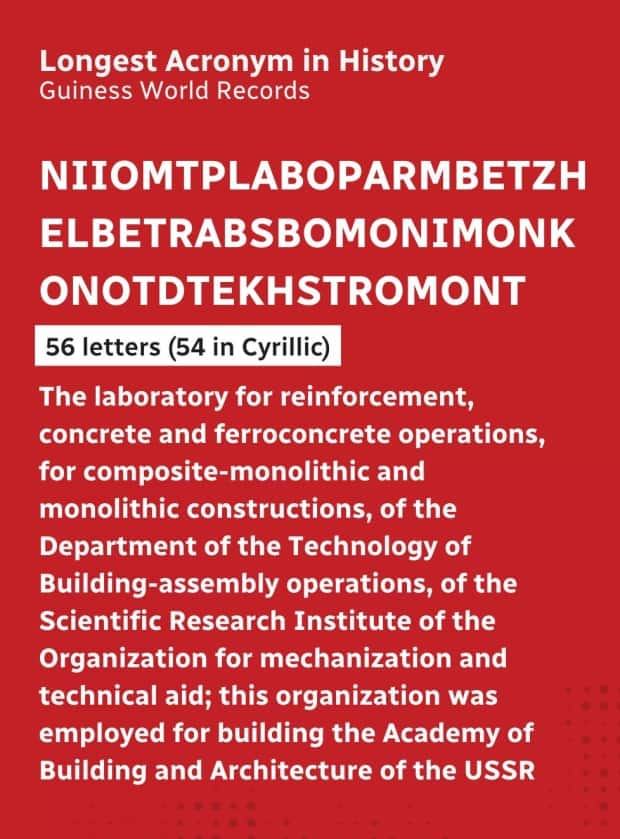From RPMHTFVVC to FNQLHSSC: What's behind Quebec's love of long abbreviations?

Nathalie Robert admits the name and abbreviation of her organization can be difficult to communicate at times.
But for her and other members of the group CAPTCHPL, the lengthy name and eight-letter initials are points of pride.
CAPTCHPL stands for Centre d'aide aux personnes traumatisées crâniennes et handicapées physiques Laurentides, an organization that assists people with brain injuries and physical disabilities in Quebec.
"[We want] to properly represent all the types of members of the organization," said Robert, an adapted leisure counsellor,
She says the importance of social inclusion is likely why many Quebec organizations lean toward longer names, even if it sometimes poses challenges.
"Presenting ourselves to peers at assemblies is challenging ... people say to us with a bit of humour, 'Ah! You're the organization with that unpronounceable name!'"

CAPTCHPL should feel right at home at an assembly of Quebec organizations.
CBC did an informal survey of groups in Quebec and their short-form names, finding dozens of groups officially operating with six letters, nearly a dozen with seven, and at least six organizations with eight.
While many were coalitions or associations representing many groups, our list also includes Quebec's recently amalgamated Ministry of the Environment, the Fight Against Climate Change, and of Fauna and Parks (MELCCFP), and the First Nations of Quebec and Labrador Health and Social Services Commission (FNQLHSSC).
How long is too long?
The Regroupement provincial des maisons d'hébergement et de transition pour femmes victimes de violence conjugale used the nine-letter RPMHTFVVC for 20 years before electing to simplify it in 2009.
The organization, which represents shelters and transition homes for women who are the victims of violence, now goes by Regroupement des maisons pour femmes victimes de violence conjugale (RMFVVC).
Vicky Croisetière, spokesperson for another group for victims of abuse, the Alliance des maisons d'hébergement de 2e étape pour femmes et enfants victimes de violence conjugale, says her group is proud to be the one with the longest name CBC found, at 16 words.
"These long names reflect an engaged civil society and a healthy democratic life among groups of community organizations," said Croisetière.
The alliance which represents second-stage shelters for women and children who are victims of conjugal violence recently settled on a simpler form, Alliance MH2.
"AMH2EFEVVC definitely didn't present itself as a viable solution as the acronym can't create an assembly of pronounceable syllables … like FRAPRU," said Croisetière, referring to the social-housing group in Montreal.

History, culture and language at play
It may not be a coincidence that several of the organizations with the longest names have the common mission of supporting women facing violence.
Croisetière says many of these kinds of community organizations stem from a societal shift that occurred during Quebec's Quiet Revolution, when a sudden rejection of the involvement of religion in social initiatives created a need for a reorganization of civil society.
"These associations emanate from moments of consultation, sharing of knowledge and common ground where we can identify a convergence of common problems," said Croisetière.
Among the associations is an umbrella group that represents help centres from across the province that combat sexual violence, the Regroupement québécois des centres d'aide et de lutte contre les agressions à caractère sexuel (RQCALACS).
"We are not the only feminist organization in Quebec with a very, very long name," said spokesperson Justine Chénier.

Many were founded in the 1970s and 80s, she said.
"They were having this reflection, or this need to have a very specific and rooted identity … to be representative of different realities," she said.
Chénier says the historical and social context aren't the only factors at play.
"There is some major difference between French and English. We use expressions differently, and I think in French we have this interest for details," said Chénier. "In English, it does not appear to be the same."
"My intuition suggests that there are indeed cultural differences between the francophone and anglophone worlds in the way names of organizations and especially acronyms are used," said Wim Remysen, a professor at the Université de Sherbooke's Centre de recherche interuniversitaire sur le français en usage au Québec (CRIFUQ). "That being said, I have never researched the phenomenon."
While comparisons can be problematic, Ontario's equivalent for RQCALACS is the more succinctly named Ontario Coalition of Rape Crisis Centres (OCRCC), while in Quebec anglophone media, RQCALACS is often referred to as the Quebec Coalition of Rape Crisis Centres.
Shorter isn't always better

Shorter names would likely have advantages from a communications perspective, but for some, that's not the priority.
"Yes, of course, branding is important, but the service we provide is also very important," said Chénier.
And for others, longer names are simply normal.
"We're stunned that names solicit this kind of questioning from outside of our home," said Vincent Vallée, a spokesperson for L'association des groupes d'intervention en défense de droits en santé mentale du Québec (AGIDD-SMQ).
"Apart from a smile here and there, no one asks questions here."


